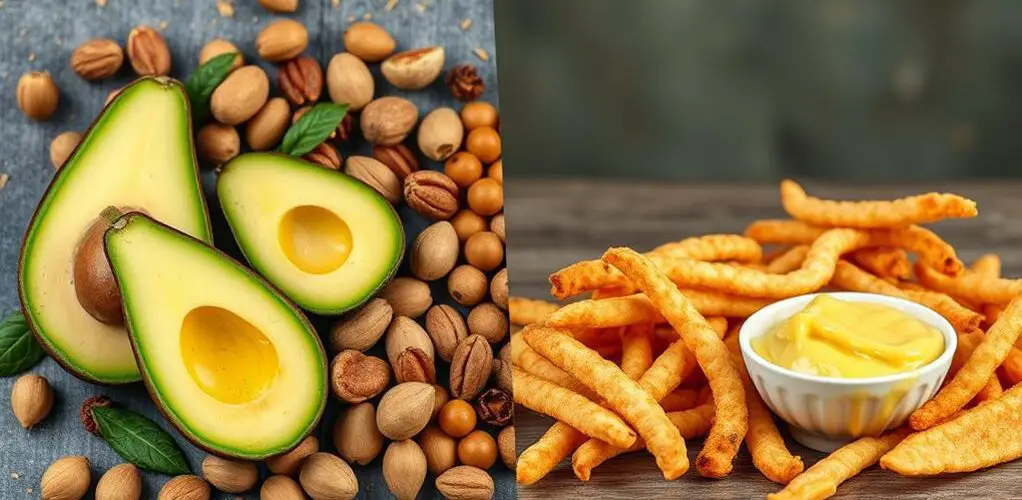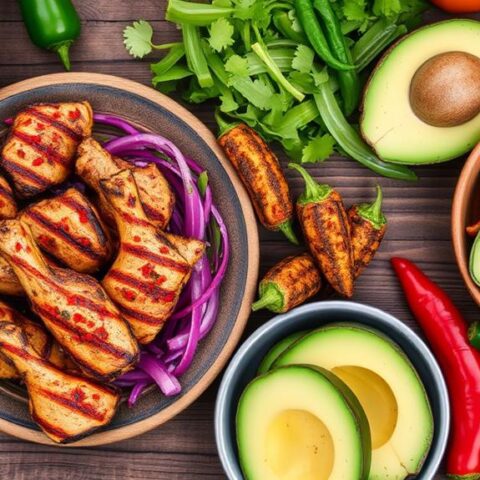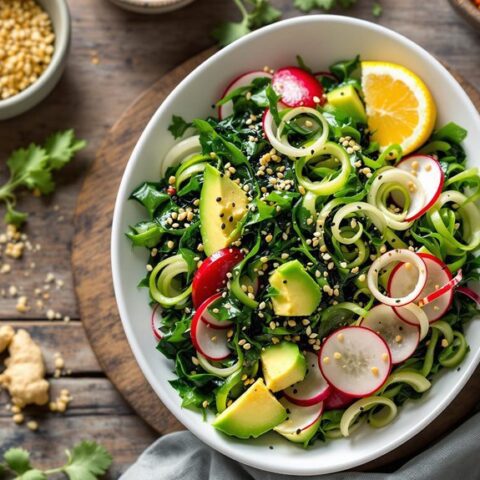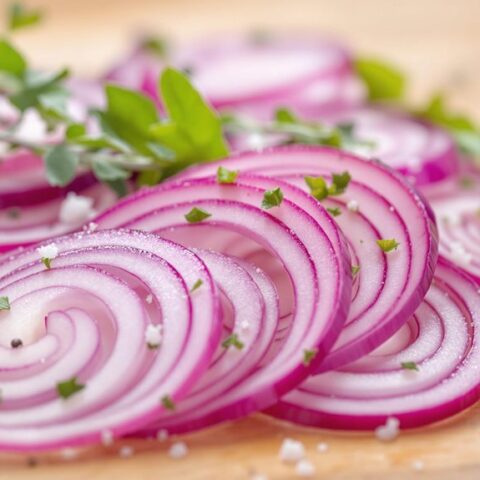
In the keto diet, fats are a big deal. They help your body switch from burning carbs to burning fat for fuel. But not all fats are created equal. Healthy fats, like those in avocados, nuts, and olive oil, can lower bad cholesterol and raise good cholesterol. They also reduce inflammation. On the flip side, bad fats—like trans fats in fried foods and margarine—can raise bad cholesterol and even clog your arteries. It's also smart to balance omega-3 and omega-6 fats to keep your body running smoothly. Curious about how to pick the right fats for a keto win? Stick around!
Key Takeaways
- Saturated fats should be consumed in moderation to avoid raising LDL cholesterol but can also raise beneficial HDL cholesterol.
- Monounsaturated fats like those in avocados and olive oil improve heart health by lowering LDL and raising HDL cholesterol.
- Polyunsaturated fats, especially omega-3s from fish, reduce inflammation and support heart health, while excessive omega-6s can cause chronic inflammation.
- Trans fats found in processed foods should be avoided entirely due to their strong link to increased cardiovascular disease risk.
- A balanced fat intake in the keto diet involves 20% saturated and 40% unsaturated fats, with a focus on healthy sources.
Types of Fats
When considering the types of fats within the keto diet, understanding their distinct characteristics and health impacts is important. Fats are not all created equal, and their effects on fat digestion and fat metabolism can vary widely.
First, we have saturated fats, which are solid at room temperature and found mainly in animal products like butter and fatty meats. These fats can raise LDL cholesterol levels, so it's imperative to consume them in moderation.
They're a bit like the moody teenager of the fat world—sometimes good, sometimes not so much.
Next up are monounsaturated fats (MUFAs), which are liquid at room temperature and found in foods like olive oil and avocados. These fats are the overachievers; they're linked to heart health benefits and can help lower cholesterol levels.
Think of MUFAs as the star athletes of the fat family.
Polyunsaturated fats (PUFAs) are another key player. They're made up of essential fatty acids like omega-3 and omega-6, important for brain function and reducing inflammation.
A balanced intake is essential—aim for a 1:1 ratio.
Lastly, trans fats are the villains. Created through hydrogenation, they're linked to increased cardiovascular disease risk and should be avoided at all costs.
Healthy Saturated Fats
Recent research frequently highlights that moderate consumption of saturated fats does not greatly increase the risk of cardiovascular disease or type 2 diabetes, challenging long-held health dogmas. This is great news for those on the keto diet! Foods rich in healthy saturated fats, like coconut oil, butter, and red meat, aren't just tasty—they're also packed with benefits.
One of the big saturated fat benefits is that they help raise your HDL, or "good" cholesterol. This is fantastic for heart health. Plus, MCT oil, which comes from coconut oil, is a superstar in the world of fats. Studies show it can help with weight loss, improve brain health, and even keep your blood sugar levels in check.
Adding moderate amounts of these healthy fat sources to your keto diet can also keep you feeling full longer. This helps you avoid those pesky snack cravings. It's a win-win!
But remember, the American Heart Association says saturated fats should make up no more than 5-6% of your daily calories. This might change depending on your health, so always check with a doctor.
In short, don't fear the fat—embrace it, but do so wisely!
Polyunsaturated Fats
Polyunsaturated fats are essential because our bodies can't make them, so we need to get them from our diet.
These fats, which include Omega-3 and Omega-6 fatty acids, are vital for balancing inflammation and promoting heart health.
However, getting the right ratio of Omega-6 to Omega-3 is important; the ideal is 1:1, but most people eat way too much Omega-6, which can cause health problems.
Essential Fatty Acids
Among the various types of fats integral to the ketogenic diet, essential fatty acids—specifically polyunsaturated fats—hold significant importance. These fats are divided into omega-3 and omega-6 fatty acids. Our bodies can't make them, so we must get them from food.
The benefits of these essential fatty acids are numerous. Omega-3 fatty acids, found in fatty fish, flaxseeds, and walnuts, are like superheroes for our heart. They help reduce inflammation and improve heart health. Imagine eating a piece of salmon and knowing it's working wonders inside you!
On the flip side, we have omega-6 fatty acids, mostly found in vegetable oils and nuts. They're essential too, but there's a catch. Too much omega-6 and not enough omega-3 can lead to problems, like inflammation. It's like when you have too much of a good thing, and it turns bad.
The ideal ratio is about 1:1, but most people eat way more omega-6—sometimes 16 times more! This imbalance can cause health issues.
Balance Omega Ratios
Maintaining a balanced intake of omega-3 to omega-6 fatty acids is fundamental to optimizing the health benefits of a ketogenic diet. Typically, the ideal balance of these fats is around 1:1, but the standard Western diet often leans towards a whopping 16:1 ratio, which can cause health issues. Omega-3 fatty acids, found in foods like fatty fish, flaxseeds, and walnuts, are superheroes when it comes to reducing inflammation and promoting heart health. On the flip side, omega-6 fatty acids, commonly found in vegetable oils, should be consumed with caution.
A diet high in omega-6 relative to omega-3 can lead to chronic inflammation, which is linked to heart disease and arthritis. To keep things in check, you can boost your omega-3 intake through supplements or by eating more foods rich in these fats. Regular consumption of omega-3-rich foods such as salmon and chia seeds can also enhance cognitive function, making them essential for anyone on a keto diet.
Here's a quick look at some omega-3 sources and tips for omega-6 moderation:
| Omega-3 Sources | Omega-6 Foods to Moderate | Health Benefits |
|---|---|---|
| Fatty Fish | Vegetable Oils | Reduced Inflammation |
| Flaxseeds | Processed Foods | Heart Health |
| Walnuts | Seed Oils | Enhanced Cognition |
| Chia Seeds | Corn Oil | Overall Well-being |
Balancing these fats can help you feel great and stay healthy!
Monounsaturated Fats
Monounsaturated fats, often lauded for their health benefits, are a cornerstone of a well-formulated ketogenic diet. These fats, commonly referred to as MUFAs, are liquid at room temperature and can be found in delicious sources like olive oil, avocados, and nuts.
The benefits of MUFAs are numerous. They help improve heart health by lowering bad cholesterol (LDL) and increasing good cholesterol (HDL). Imagine, just by adding a tablespoon of olive oil to your salad, you're not only making it tastier but also healthier, as it contains about 13.5 grams of these heart-friendly fats.
Including MUFAs in your diet can also help reduce inflammation and improve insulin sensitivity. This is super beneficial for weight management and overall metabolic health. Picture biting into a creamy avocado; half of it gives you 10.5 grams of fat that keeps you full and satisfied, making it easier to stick to your keto goals.
Studies even show that diets rich in MUFAs, like the Mediterranean diet, are linked to lower mortality rates and better heart outcomes. So, next time you munch on some nuts, know you're doing your body a favor!
Unhealthy Fats

Maneuvering the landscape of fats in the ketogenic diet also means being aware of unhealthy fats that can undermine your health goals. Trans fats, often found in processed foods and fried items, are particularly harmful. They greatly increase the risk of heart disease and should be avoided entirely for better fat health.
Similarly, processed meats like deli meats and sausages are packed with saturated fats and preservatives. These not only raise cholesterol levels but have also been linked to an increased risk of cancer, so consuming them minimally aligns better with dietary guidelines.
Fried foods present another danger. Often cooked in unhealthy oils, they absorb trans fats during the frying process, leading to weight gain and cardiovascular issues.
Hydrogenated oils, commonly found in margarine and many processed snacks, are major culprits too. They contain trans fats that raise bad LDL cholesterol and lower good HDL cholesterol, posing serious health risks.
Lastly, while some saturated fats are okay in moderation, high-saturated fat foods like fatty cuts of meat and full-fat dairy should be consumed sparingly. Excessive intake can lead to raised cholesterol levels and an increased risk of heart disease, making mindful choices essential for maintaining good fat health.
Fat Consumption Tips
When planning fat consumption on a keto diet, it's essential to balance your fat ratios and identify healthy sources.
Aim for fats like those from avocados and olive oil for heart health, and include omega-3s from fish and flaxseeds to boost brain function and reduce inflammation.
Remember to limit saturated fats and avoid trans fats to keep your heart happy and your diet well-rounded.
Balancing Fat Ratios
Balancing fat ratios is critical for optimizing health and achieving desired outcomes on a keto diet. Ensuring a balanced fat intake according to dietary guidelines can make a significant difference in your overall wellness. Aim for a ratio where 20% of your fats are saturated and 40% are unsaturated. This balance promotes heart health and helps you get the most out of your keto journey.
Watching your fat intake is essential since fats are calorie-dense. If you overdo it, you might consume more calories than you need, which could slow down your weight loss. Keep an eye on the grams of fat you eat per pound of your body weight. Generally, aim for 0.5 to 1 gram per pound.
Variety is your friend when it comes to fats. Include avocados, olive oil, nuts, and fatty fish in your meals. These foods provide a wide range of essential fatty acids that your body needs.
Pay special attention to omega-3 and omega-6 fatty acids. You want to keep these in a 1:1 ratio. Too much omega-6 can lead to inflammation, so balance is key here too.
Eating the right mix of fats can boost your health and make your keto diet more effective.
Identifying Healthy Sources
Identifying healthy sources of fats is essential for optimizing the benefits of a keto diet. Prioritizing healthy fat sources can make all the difference. Unsaturated fats, found in avocados, olive oil, and nuts, not only support heart health but also have awesome anti-inflammatory benefits. Think of these as the superheroes of your diet.
Incorporate omega-3 fatty acids from fatty fish like salmon and sardines to boost brain function and reduce inflammation—aim for at least two servings per week to keep your brain sharp!
On the flip side, be cautious with saturated fats from red meat and full-fat dairy. Limit these to about 20% of your total fat intake to keep your heart in good shape.
And here's a big no-no: avoid trans fats like the plague. Found in processed foods and hydrogenated oils, these villains greatly increase the risk of heart disease.
When it comes to cooking oils, choose high-quality options like extra virgin olive oil and coconut oil. These are stable at higher temperatures and pack a nutritional punch without compromising your dishes.
Frequently Asked Questions
What Is the Role of Fat in the Keto Diet?
In the keto diet, fats play a pivotal role by driving fat metabolism, facilitating ketosis, and providing essential fatty acids. These fats, mainly healthy ones, support cardiovascular health, reduce inflammation, and promote overall well-being.
What Fats Are Bad for Keto Diet?
On a keto diet, avoid trans fats due to their negative cardiovascular impact. Limit saturated fats sources such as processed meats, high-saturated fat dairy products, and hydrogenated oils, which can increase LDL cholesterol and cancer risk.
What Are the Differences Between Good Fats and Bad Fats?
The principal differences between good and bad fats lie in their health effects: healthy fats, including monounsaturated and polyunsaturated fats, support heart health and reduce inflammation, while bad fats, particularly trans fats, increase heart disease risk.
What Happens if You Don't Eat Enough Fat on Keto?
If you don't eat enough fat on a keto diet, you may experience fat deficiency symptoms, reduced keto energy levels, nutrient absorption issues, increased appetite, and potential hormonal imbalances, ultimately compromising your overall health and keto diet effectiveness.
Conclusion
Understanding the different types of fats is essential for anyone on a keto diet. Healthy saturated fats, polyunsaturated fats, and monounsaturated fats can provide essential nutrients and energy. Conversely, unhealthy fats, such as trans fats, should be avoided due to their negative health impacts. By choosing the right fats and following smart consumption tips, one can optimize the benefits of the keto diet while minimizing risks. Making informed choices about fat intake is key to maintaining overall health and achieving dietary goals.










No Comments